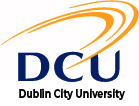BEng (with Honors) in Electronic and Computer Engineering
Key Points
An electronics and computer engineer is a problem solver by nature: a person who wonders how things work and how to do things right. Mathematics is the universal language of engineering and you should be comfortable with logical and methodical approaches to understanding real-world phenomena.
Program description
This unique program, with four main options in year four, replaces and combines the best of DCU’s previous offerings in electronic engineering, digital media engineering, and information engineering and communications.
You will be taught through conventional lectures, extensive tutorials (particularly in the first year), lab exercises, and projects. Through them, you will develop the ability to model and analyze the dynamics of a wide range of technological systems, as well as learn a creative and innovative approach to problem solving.
The curriculum for the first three years and the 22.5 credits of the core modules in the fourth year are common to all ECE students.
In addition to the traditional engineering focus on math and design, there is a strong software and programming theme that runs through our ECE program. You will learn about:
- C, C ++
- Java, Embedded Systems
- Linux and Windows Operating Systems
- Data Structures and Algorithms
- Hardware Description Language
- Object Oriented Programming
- Web Application Development
In year three, you will participate in a six-month INTRA job. Most students choose a paid engineering internship with a company in Ireland, but some students are able to go abroad or be placed in research positions within DCU.
In year four, you will select a major option and gain relevant skills through specific specialization modules and an individual college project. Currently the course offers the following four specialties, which we will adapt over time so that our graduates have the most relevant and up-to-date technology and experience:
- ECE with specialization in systems and devices: this is a specialization in core technologies of electronics and semiconductors that support the priority areas of research, from sensors , diagnostics, medical devices, digital control of mechatronic systems to optical communications and novel materials.
- ECE with a specialization in high-speed communication: Focuses on devices that communicate with devices at high speed, for example, optical networks and technologies high-speed wireless. It is the foundation of priority areas of research in next-generation networks that support the changing demands of devices and applications.
- ECE with a specialization in Digital Interaction – This takes you into the realms of humans communicating with devices and the devices that communicate with the world. It is the basis of the priority areas of research in human-machine interfaces. Key year four modules in this area include 3D interface technologies, web application development, and image processing and analysis.
- ECE specializing in the Internet of Things: The Internet transformed the world of human access to knowledge and information in unimaginable ways; The Internet of Things is about to unleash an almost inconceivable transformation of the man-made environment in which we live. It focuses on devices that communicate over the Internet. This major underpins priority research areas in smart cities and energy efficient devices and networks.
Career options
Graduates can find employment in the following career areas:
- Communications
- Electronics industry
- Healthcare
- Smart economy
- Sustainable energy
Career prospects
- Research and development
- Layout
- administration
- Production
- Sales
Irish and international organizations are looking for electronic and computer engineers in the following areas and beyond:
- Design Engineer
- Management Engineer
- production engineer
- Research and Development Engineer
- Sales Engineer
- Software engineer
Program structure
Admission requirements
- As a general requirement, a Bachelor’s Degree / Baccalaureate Diploma / General Baccalaureate / Professional Degree from a recognized university with, minimum, is required a subject in mathematics.
- For international candidates, the foreign equivalent is required. In addition, an officially translated degree will be required.
- IELTS 6.5, with no less than 6.0 in any component (or its internationally recognized equivalent).
Learn more about our educational offer
Request your quote
An advisor will contact you by phone and email within the following hours

